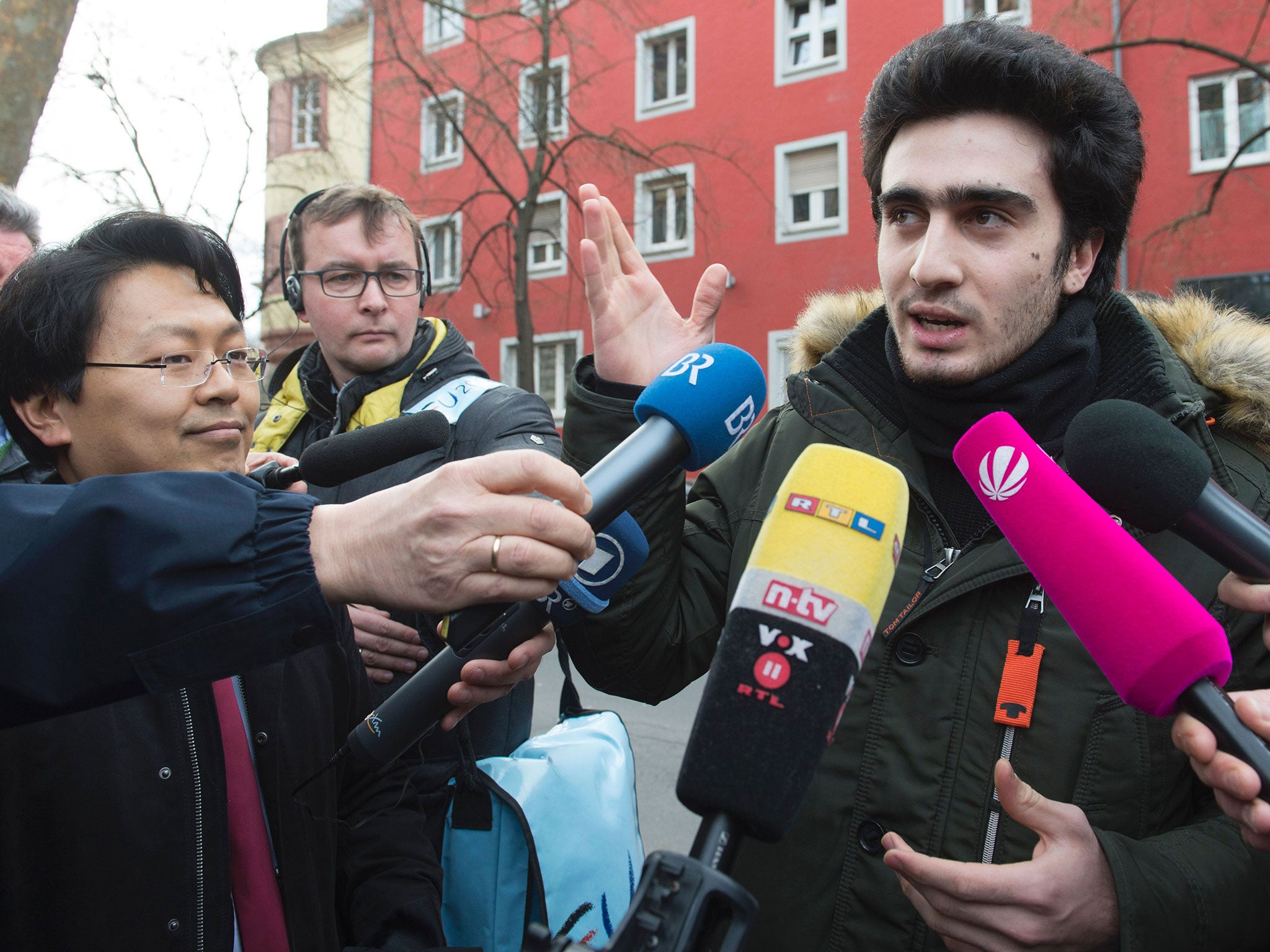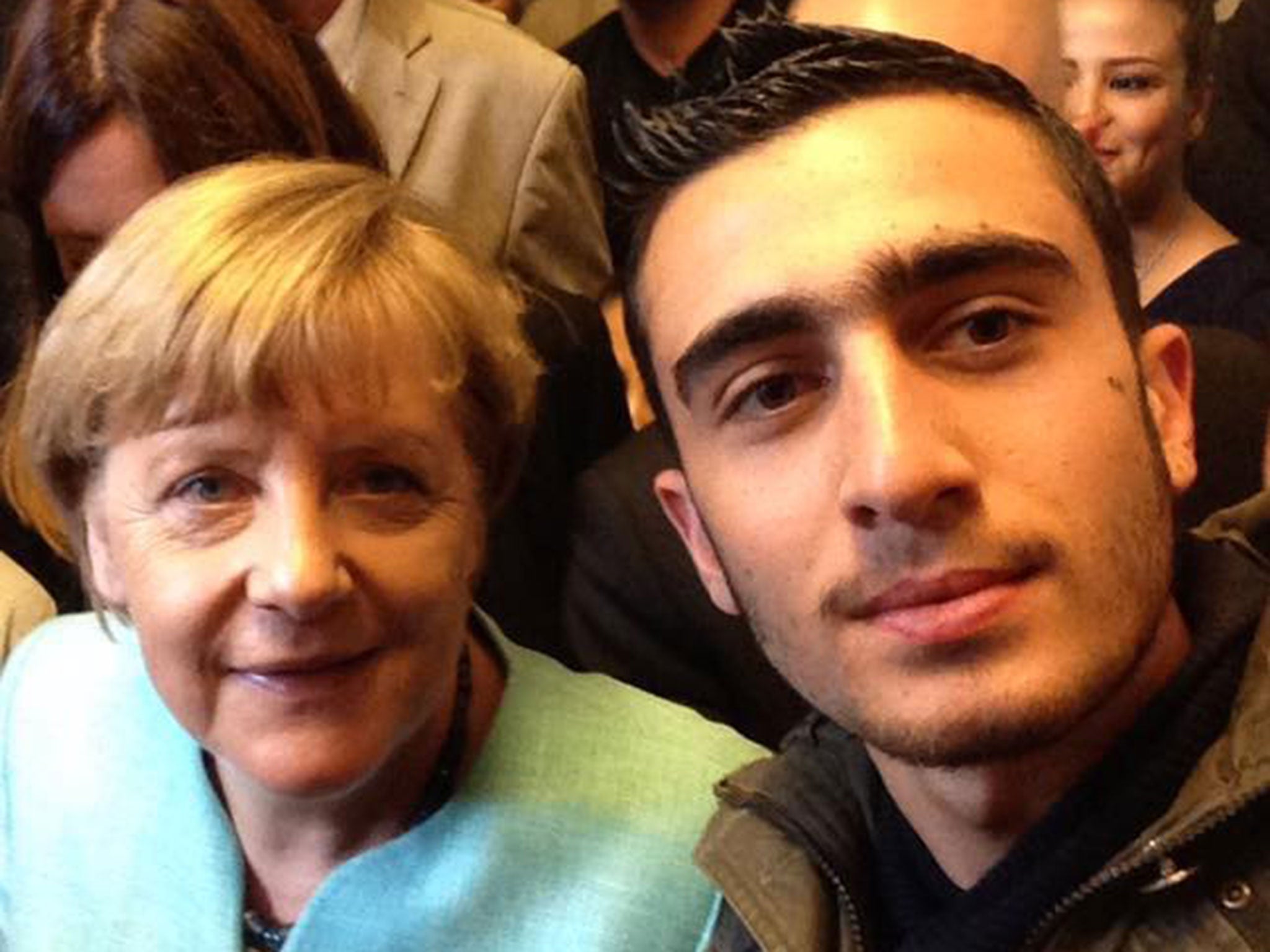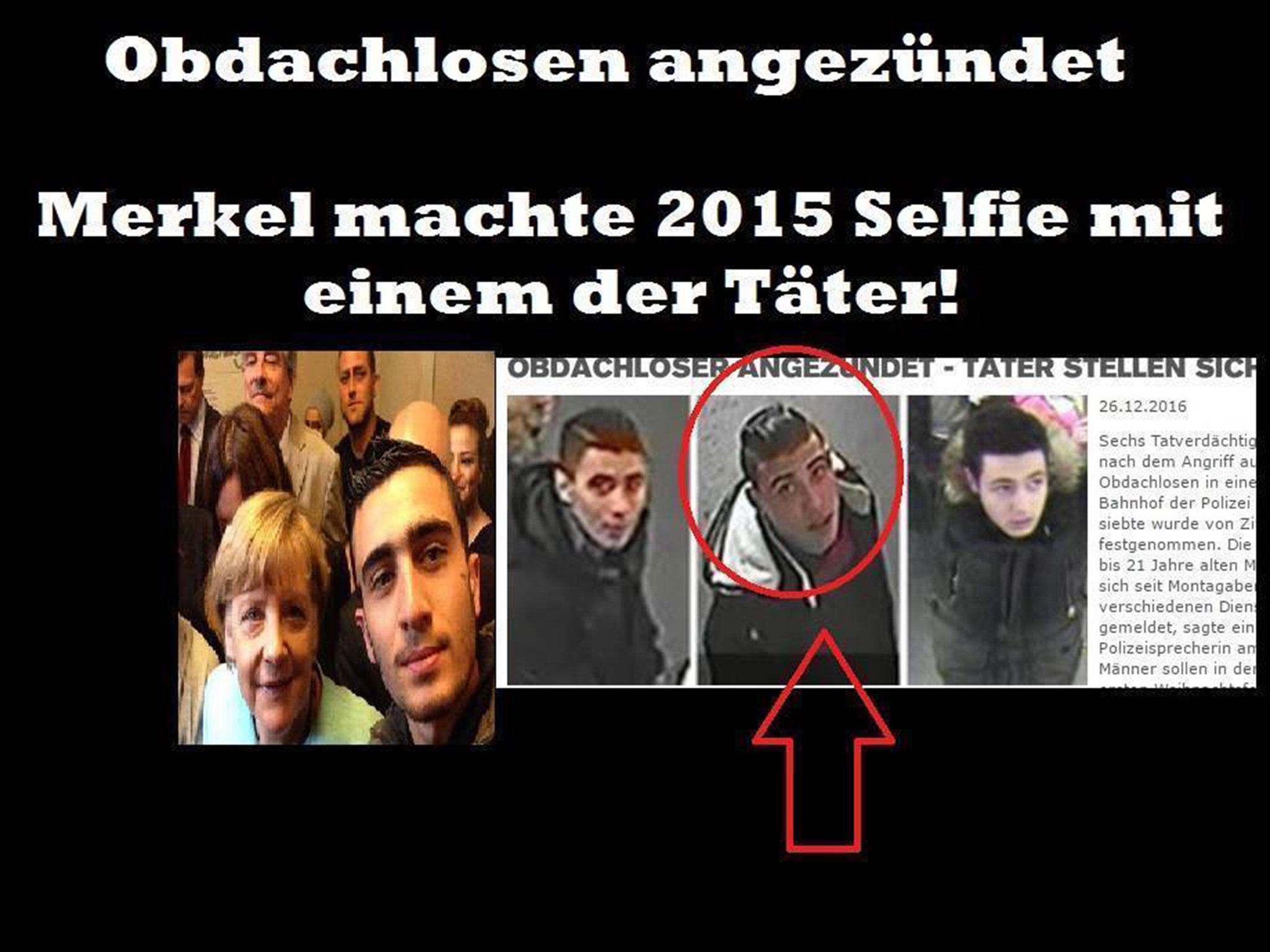Syrian refugee's German lawsuit against Facebook over 'fake news' terror claims begins
Anas Modamani, 19, is seeking a landmark injunction stopping the spread of defamatory posts

Your support helps us to tell the story
From reproductive rights to climate change to Big Tech, The Independent is on the ground when the story is developing. Whether it's investigating the financials of Elon Musk's pro-Trump PAC or producing our latest documentary, 'The A Word', which shines a light on the American women fighting for reproductive rights, we know how important it is to parse out the facts from the messaging.
At such a critical moment in US history, we need reporters on the ground. Your donation allows us to keep sending journalists to speak to both sides of the story.
The Independent is trusted by Americans across the entire political spectrum. And unlike many other quality news outlets, we choose not to lock Americans out of our reporting and analysis with paywalls. We believe quality journalism should be available to everyone, paid for by those who can afford it.
Your support makes all the difference.A Syrian refugee suing Facebook over “fake news” falsely accusing him of terrorism says he has a “good feeling” about the outcome of the landmark case.
Anas Modamani’s chance selfie with Angela Merkel at his shelter in Berlin went viral in 2015, with the initially positive reaction becoming increasingly sinister after a wave of terror attacks in Europe.
The teenager’s picture was used in Facebook posts accusing him of links to terrorist attacks and the attempted murder of a homeless man in Berlin, with the images remaining online despite a series of attempts to have them removed.

Mr Modamani, now 19, is now suing Facebook for damages and seeking an injunction that would force the social media giant to actively search for and remove such posts, rather than wait for users to flag violations of the site’s “community standards”.
His lawyer, Chan-jo Jun, said that Facebook has a legal responsibility to remove defamatory or discriminatory content that violates German law.
“Instead, Facebook has created an environment that allows illegal content to thrive,” he told The Independent, saying malicious posts about Mr Modamani had remained online despite repeated complaints.
Mr Jun said that the legal community has a “chance to curb fake news, at least where the rights of individuals are violated”, and hopes his case could set a precedent for the future.
It also names a politician from the anti-immigrant Alternative for Germany party, who was allegedly among hundreds of people who shared one of the posts featuring the Syrian refugee’s picture.
The case opened at Würzburg district court on Monday, with the courtroom packed with journalists and supporters.
Martin Munz, a lawyer representing Facebook, told the court that a billion pieces of content can be uploaded to the site in a single day, and that a “miracle machine” would be needed to sort through it.
Judge Volkmar Seipel, who admitted he was not a Facebook user himself, adjourned the case until 7 March for time to assess both sides.
“An amicable agreement is not possible today,” he said at the close of a 40-minute hearing.
The judge will make a ruling next month, unless Facebook and Mr Modamani’s representatives reach an out-of-court settlement in the interim period.
The Syrian refugee, who now lives in Berlin with a German family, said he was returning home “with a good feeling”.
Mr Modamani had only been in Germany for a couple of weeks after journeying across the Aegean Sea and through the Balkans from a war-torn suburb of Damascus when he snapped his chance photo with Ms Merkel.
But the teenager had no idea that an agency photographer standing metres away had captured the moment on camera, with the image going viral in a matter of hours and dominating international news coverage.
It was swiftly picked up by far-right activists and groups in hate-fuelled social media posts that evolved into “fake news” stories spread on Facebook, accusing Mr Modamani of terrorism and attempted murder.
Among them is a combination of his selfie with CCTV images of one of the Brussels bombers, alleging he was among Isis militants who attacked the Belgian capital, with the caption “you reap what you sow”.

The jihadis were identified, but Mr Modamani remained a target. As the hunt continued for the man who rammed a lorry into a Christmas market in Berlin in December, his photo popped up again.
It was superimposed on photos of the wreckage from the massacre in a mock news story with the headline “They are Merkel’s dead”.
Then, after a homeless man was set on fire by seven migrants at a Berlin underground station over Christmas, Mr Modamani was falsely alleged to be among the suspects.
The lies were repeated on Twitter and on websites posing as “anti-mainstream media” news outlets, where the articles remain.
He hoped the false stories would die down but as malicious claims continued to surface in new incarnations, an activist group that debunked the allegations put him in touch with a lawyer.
“I came to Germany because I wanted to live in peace, away from danger,” Mr Modamani told The Independent ahead of the court case.
“I don’t want anyone to continue using my photo on Facebook. I want to live in peace without any problems.”
A spokesperson for Facebook said it took down one piece of content that “violates Mr Modamani's right of personality” at his lawyer’s request, adding: “Access to that reported content was quickly disabled, so we do not believe there is any basis for him to seek an injunction.”
The case is being closely watched as Germany prepares new legislation to force the social network to remove “hate speech” from its web pages within 24 hours or face fines.
Join our commenting forum
Join thought-provoking conversations, follow other Independent readers and see their replies
Comments